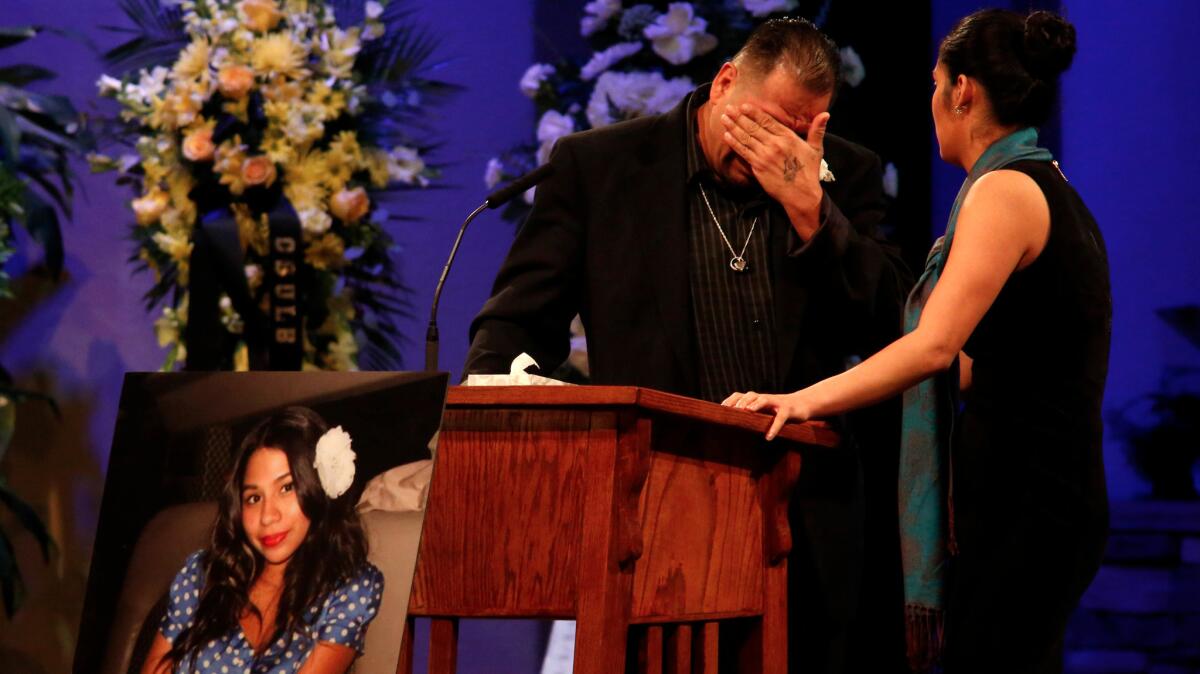Father of woman killed in Paris terror attacks sues Google, Twitter and Facebook

The father of a 23-year-old woman killed in the Paris terror attacks has filed suit against Google, Twitter and Facebook, alleging the companies provided âmaterial supportâ to extremists.
Reynaldo Gonzalez, whose daughter Nohemi was one of 130 killed in the attacks, filed the suit Tuesday in the U.S. District Court in the Northern District of California.
The suit alleges that the social media giants âknowingly permittedâ the Islamic State group to spread extremist propaganda, raise money and attract new recruits via their social networks.
âThe fact of the situation is that while these companies do something to try to curtail terrorist use of the websites, they donât do enough,â said Keith Altman, a lawyer who is representing Gonzalez.
In a statement, a Twitter spokesperson said the lawsuit is without merit and noted that there are âteams around the world actively investigating reports of rule violations, identifying violating conduct, and working with law enforcement entities when appropriate.â
âTwitter strongly condemns the ongoing acts of violence for which ISIS claims credit, and our sympathies go out to those impacted by these acts of terror,â the statement read.
Google said it could not comment on pending litigation but noted that it has âclear policies prohibiting terrorist recruitment and content intending to incite violence and quickly remove videos violating these policies when flagged by our users.â
In a statement, Facebook said the company works aggressively to remove content that promotes or supports terrorism.
âThis lawsuit is without merit and we will defend ourselves,â the statement said.
The lawsuit cites a Brookings Institution report, that looks at the use of Twitter by the Islamic State. According to the report, cited in the lawsuit, the terror group âhas exploited social media, most notoriously Twitter, to send its propaganda and messaging out to the world and to draw in people vulnerable to radicalization.â
Section 230 of the Communications Decency Act states that âno provider or user of an interactive computer service shall be treated as the publisher or speaker of any information provided by another information content provider.â
But the suit notes that the claims are âbased not upon the content of ISISâ social media postings, but upon Defendants provision of the infrastructure which provides material support to ISIS.â
âTheyâre going to try and hide behind the ⦠act,â Altman said. âThis is not about the content of the postings. This is about providing an infrastructure by which ISIS can recruit, conduct operations and spread propaganda.â
For more breaking news, follow me on Twitter @brittny_mejia
ALSO
West Hollywood plastered with rainbow #ShootBack signs
Recall of judge in Stanford rape case poses âthreat to judicial independence,â lawyers say
Strong winds push wildfire in Los Padres National Forest near Santa Barbara to 1,200 acres
UPDATES:
3:45 p.m.: This article was updated with a comment from Facebook.
This article was originally published at 2:15 p.m.
More to Read
Sign up for Essential California
The most important California stories and recommendations in your inbox every morning.
You may occasionally receive promotional content from the Los Angeles Times.











